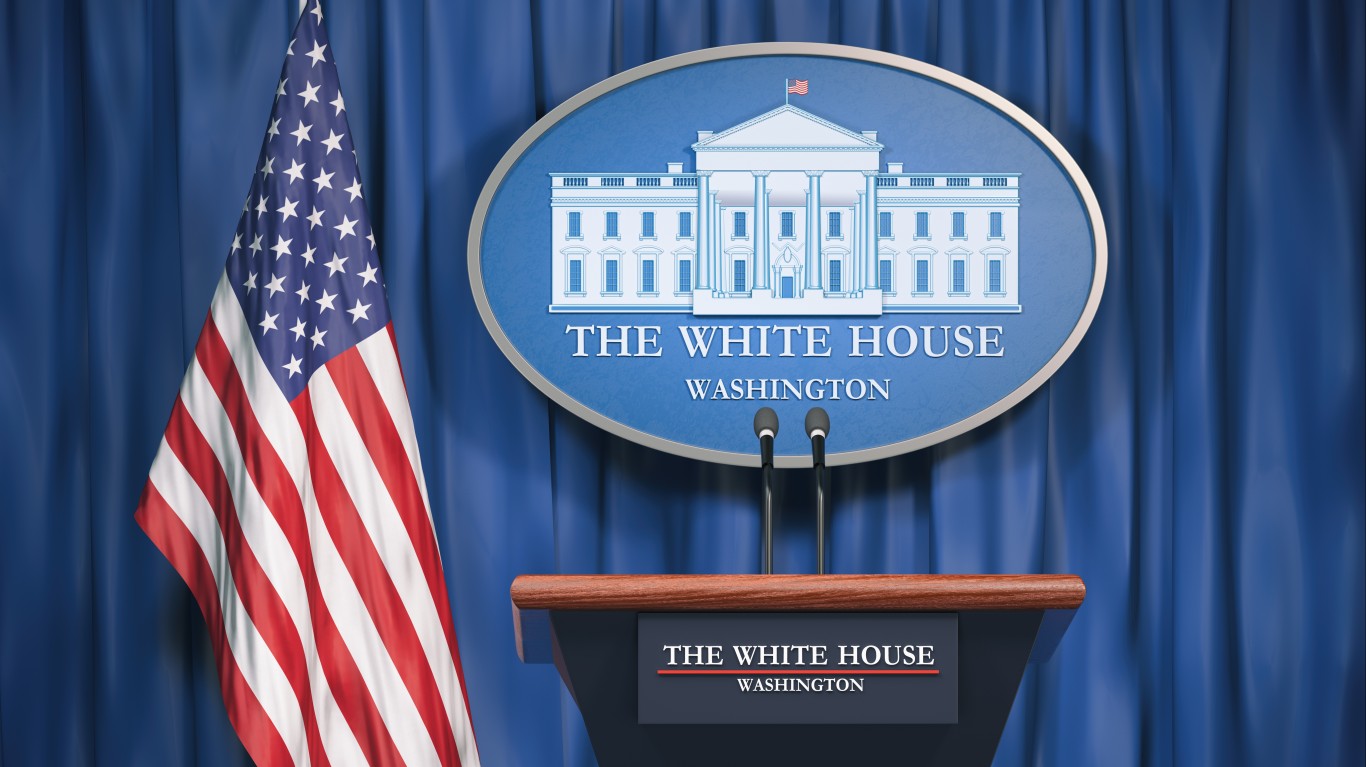
Everybody loves to complain about politicians, especially those on the very top, and not without reason. When you have no ability to fight back against those who abuse their power, and no way to hold them accountable, voting, opinion polls, and protests are the only options remaining. That being said, who are the most disliked world leaders today?
We looked at the list of countries that have valid, real opinion polls about their leaders and found which ones are the most unpopular. In fact, some are so unpopular that they resigned while this article was being written! We included them along with their replacements.
All these data are taken from a Statista report released in March of 2024 from a survey conducted from February 29 to March 6, 2024. All respondents were 18 years or older. All the people included in the survey only answered questions about the leader of their own country.
Why Are We Talking About This?
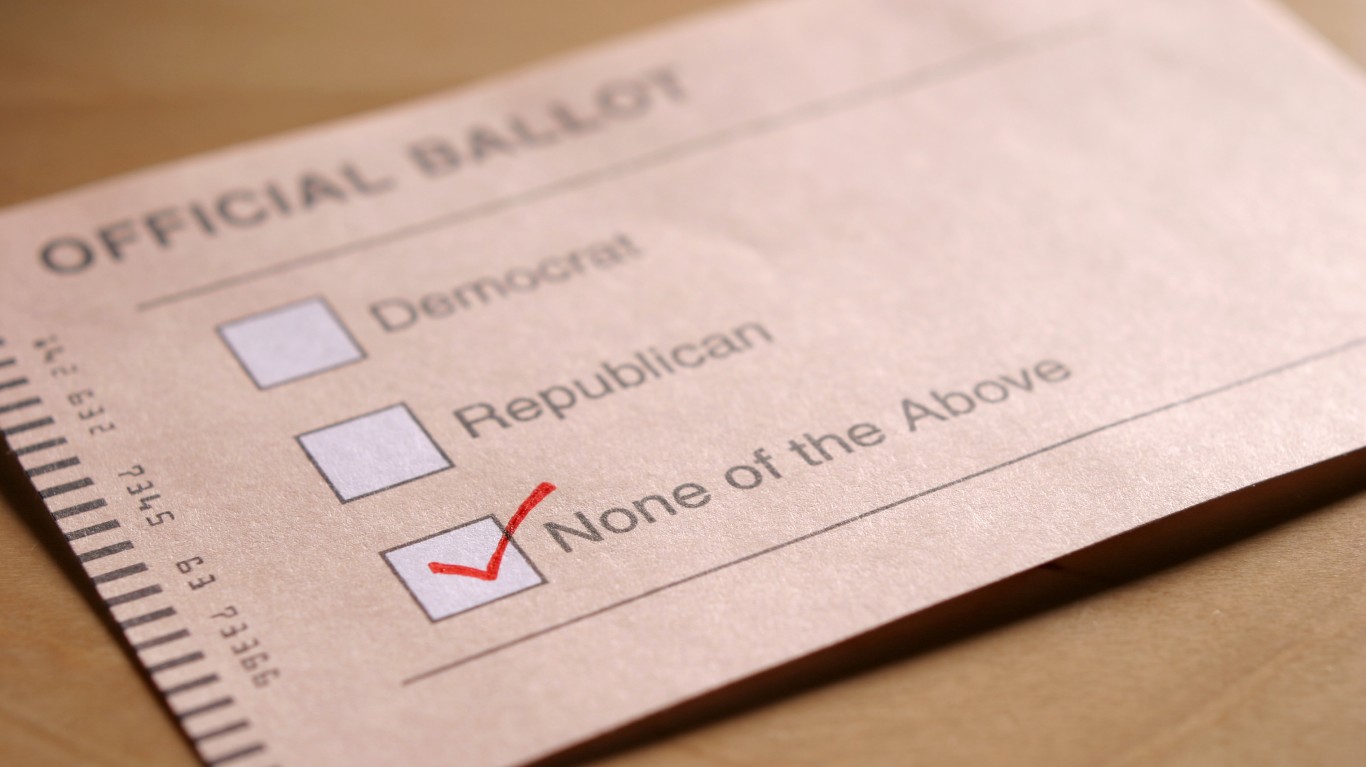
No country exists in a vacuum. If we are to understand the trends and direction of world cultures and politics, we can’t just look at our own country and leaders. To be citizens of the world, we have to look to our neighbors and those far away and see their political changes in relation to our own.
#20 Anthony Albanese
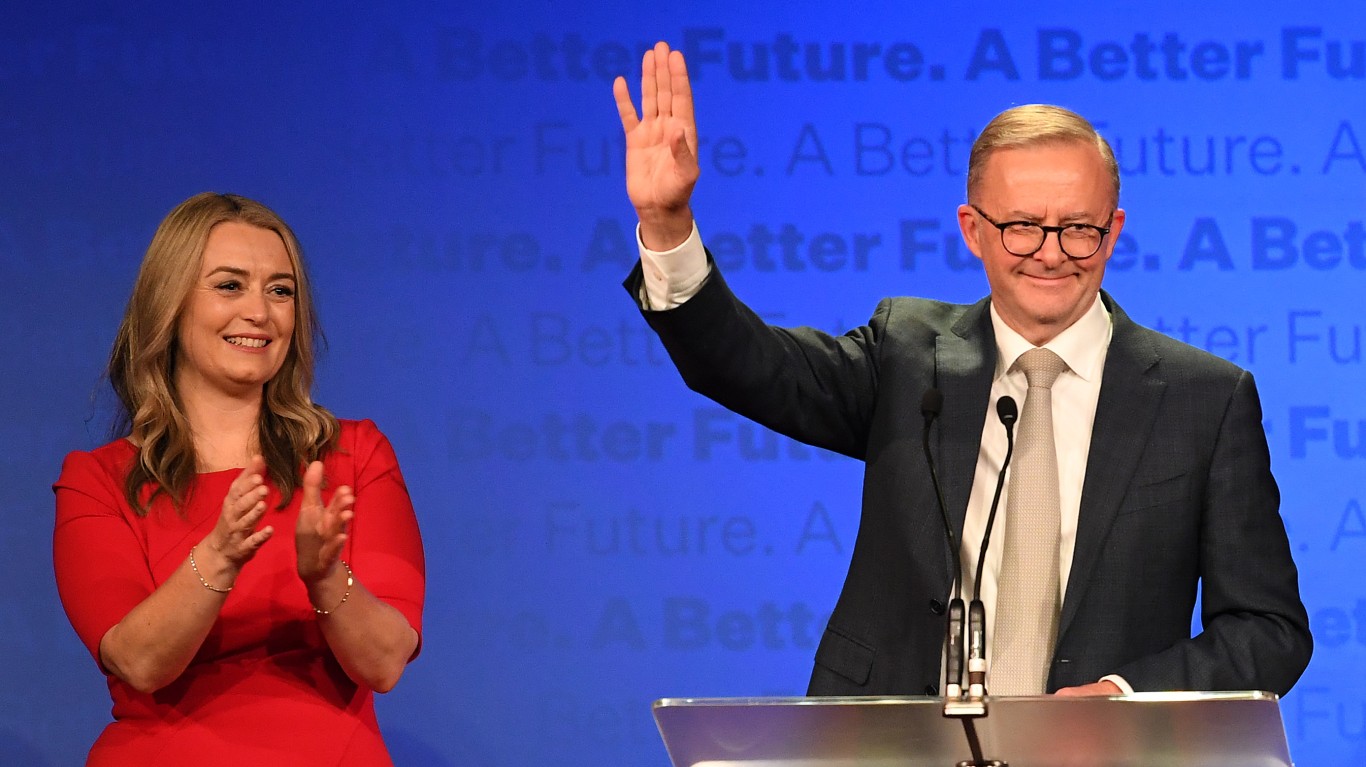
- Country: Australia
- Approval: 48%
- Disapproval: 41%
Anthony Albanese is a leader of the Australian Labor Party and has been prime minister since 2019. His first act after being reelected in 2022 was to introduce a change to the constitution that gave a voice in parliament to indigenous people, he also is working to make Australia carbon neutral by 2050 and supports an increase to Australia’s minimum wage.
His views have slowly moved more toward the center during his political career. His main hurdle which impacts his popularity is a strong right-wing media industry owned by rich and powerful politicians in the Liberal party.
#19 Luiz Ignacio Lula da Silva
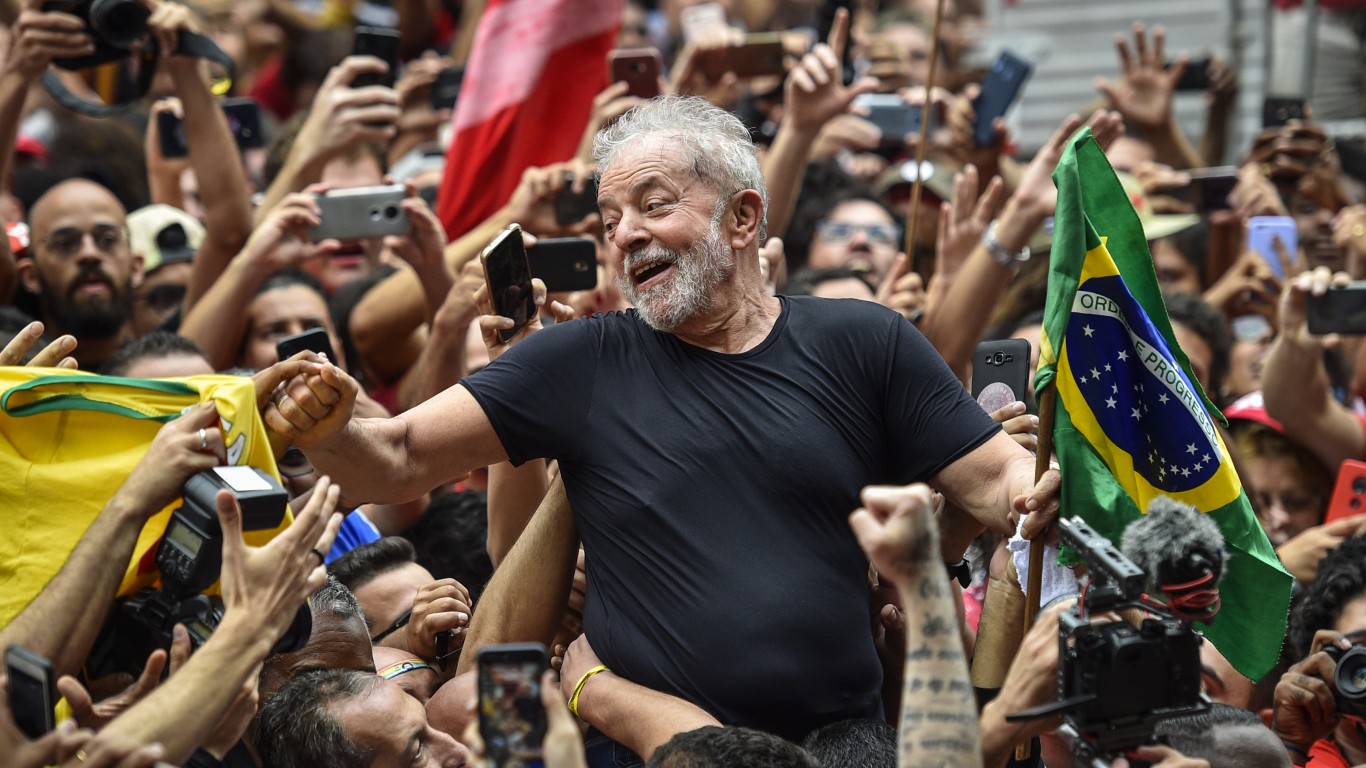
- Country: Brazil
- Approval: 43%
- Disapproval: 49%
Silva was first elected president in 2002 and was re-elected in 2006. As a left-wing president, he instituted many reforms that helped grow Brazil’s GDP, reduced the public debt, reduced inflation, and helped more than 20 million people escape a life of poverty. He was one of the most popular and successful of all Brazil’s presidents. However, he was convicted of money laundering in 2017 and served 580 days in prison.
The Supreme Court nullified his conviction in 2021, which allowed him to run for the presidency again in 2022 and win.
#18 Giorgia Meloni
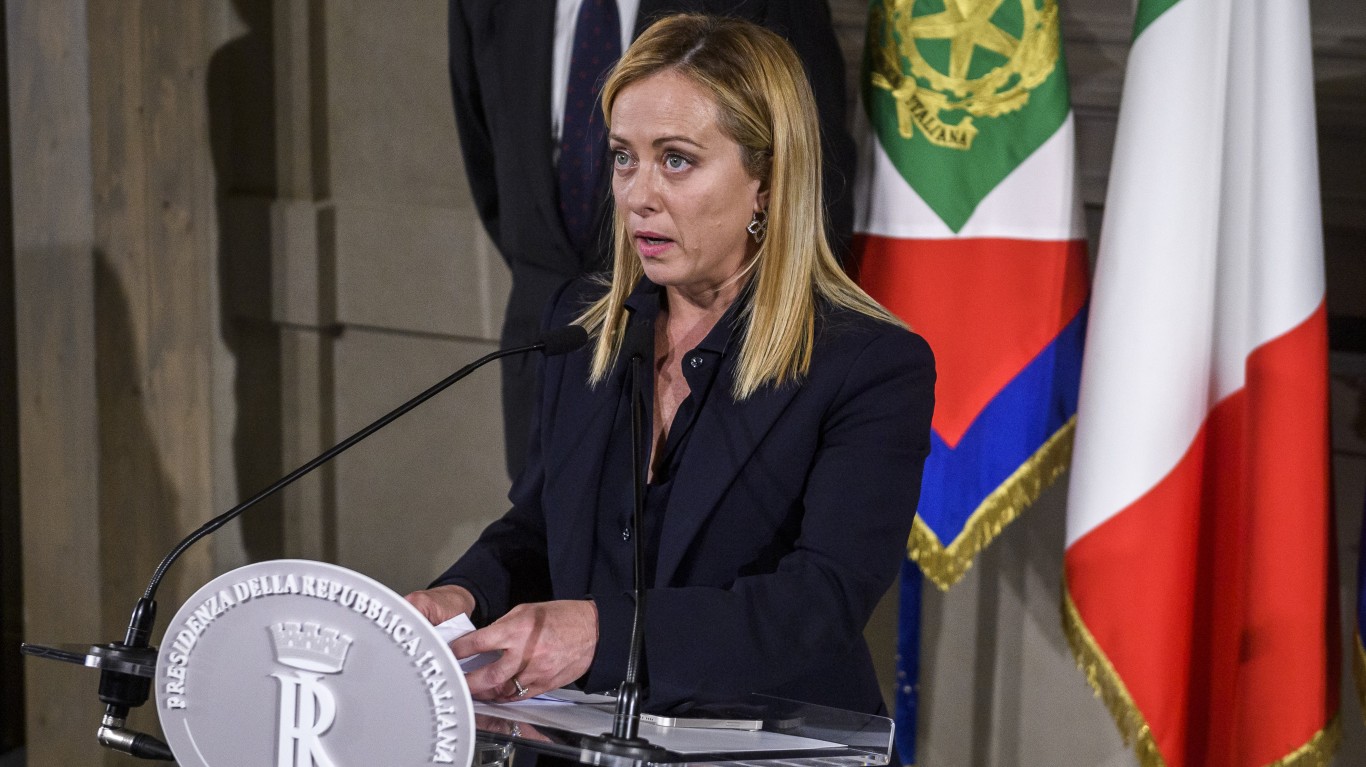
- Country: Italy
- Approval: 43%
- Disapproval: 51%
Meloni has been the prime minister of Italy since 2022 and is the first woman to hold this office. She is the leader of the right-wing party, Brothers of Italy. She is among the most influential and powerful women in the world, with Forbes calling her the fourth-most powerful woman in the world.
Meloni is anti-LGBT and holds many xenophobic, Christian nationalist, and Islamophobic views. She has introduced new legislation that strengthens the powers of the prime minister, and new laws that solidify the parliamentary power of the winning party. She also passed a law that says only the biological parents of a child can be on a birth certificate. She has attempted to make surrogacy a crime and has opposed laws to protect minorities or allow same-sex parenting.
#17 Joe Biden
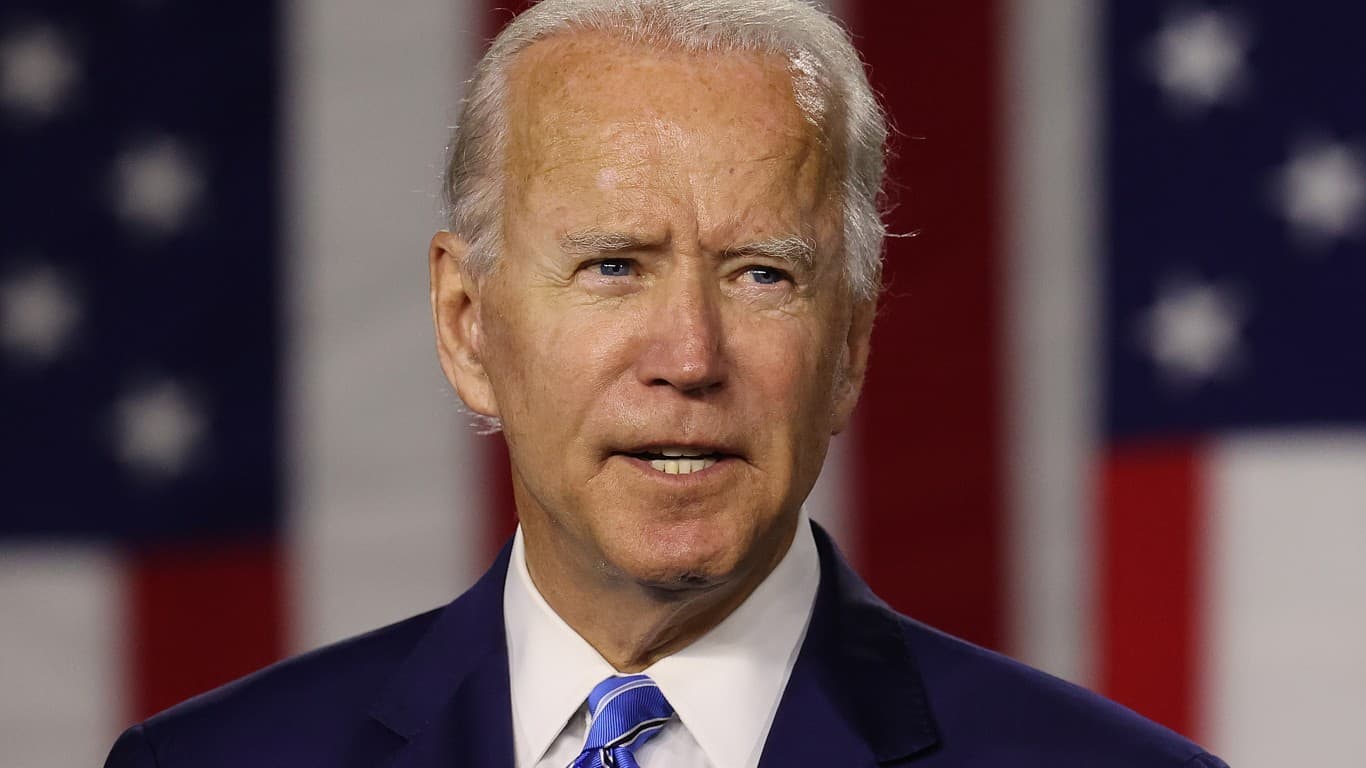
- Country: United States
- Approval: 39%
- Disapproval: 54%
Biden served as a Senator from Delaware from 1973 to 2009, then as the Vice President to Barack Obama from 2009 to 2017, then as the President from 2021. He is the current candidate for the 2024 presidential election. Biden has said his political positions are influenced by his Catholic background and has been called a moderate Democrat. Though recently, his presidential platform has been called the most progressive of any major party in America’s history.
#16 Pedro Sanchez
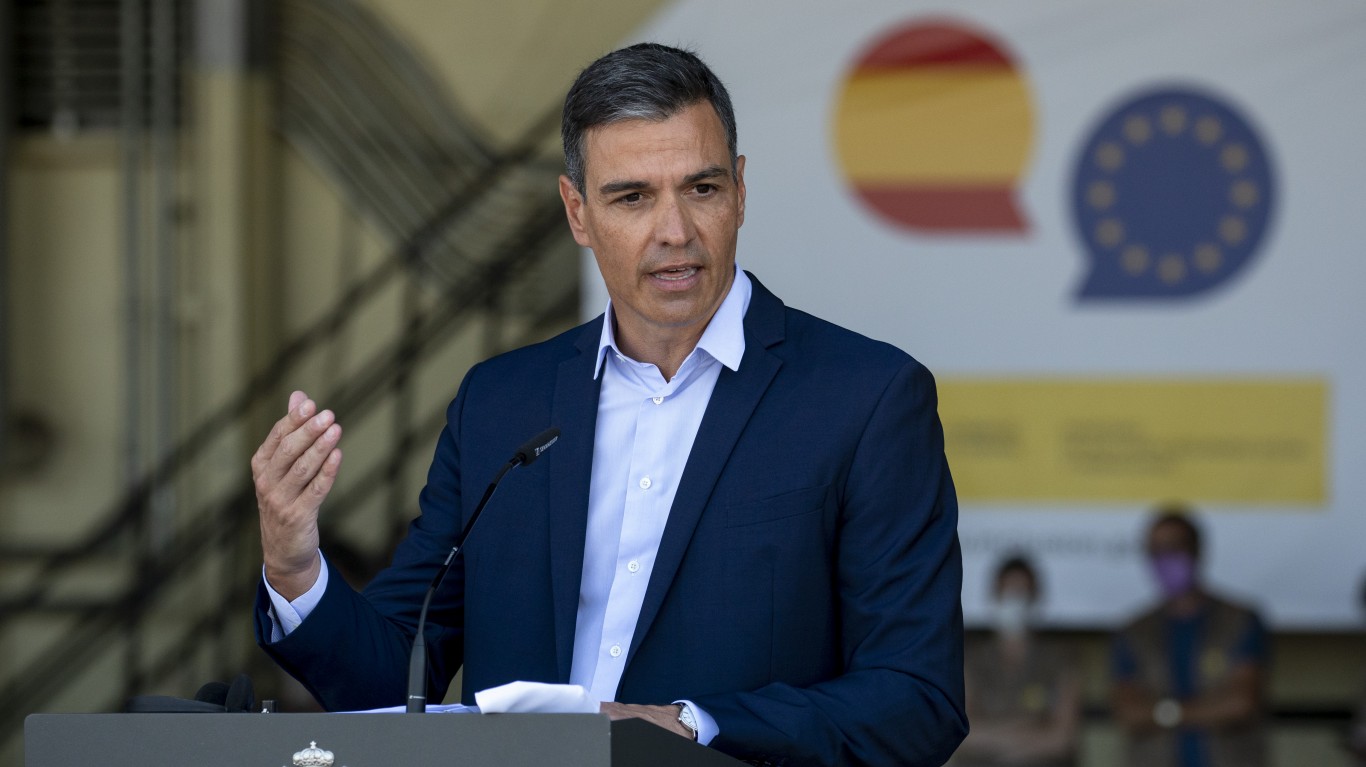
- Country: Spain
- Approval: 38%
- Disapproval: 57%
Sanchez has been the Prime Minister of Spain since the election in 2018. He was appointed to his third term as Prime Minister in 2023. He has run on centrist and social liberal platforms in the past, but following his successful 2017 and 2018 political elections, he moved further left and now openly supports a “re-foundation of social democracy” and has said that he supports plans to transition to a post-capitalist society, in which he would like to see an end of neoliberal capitalism.
#15 Alexander de Croo
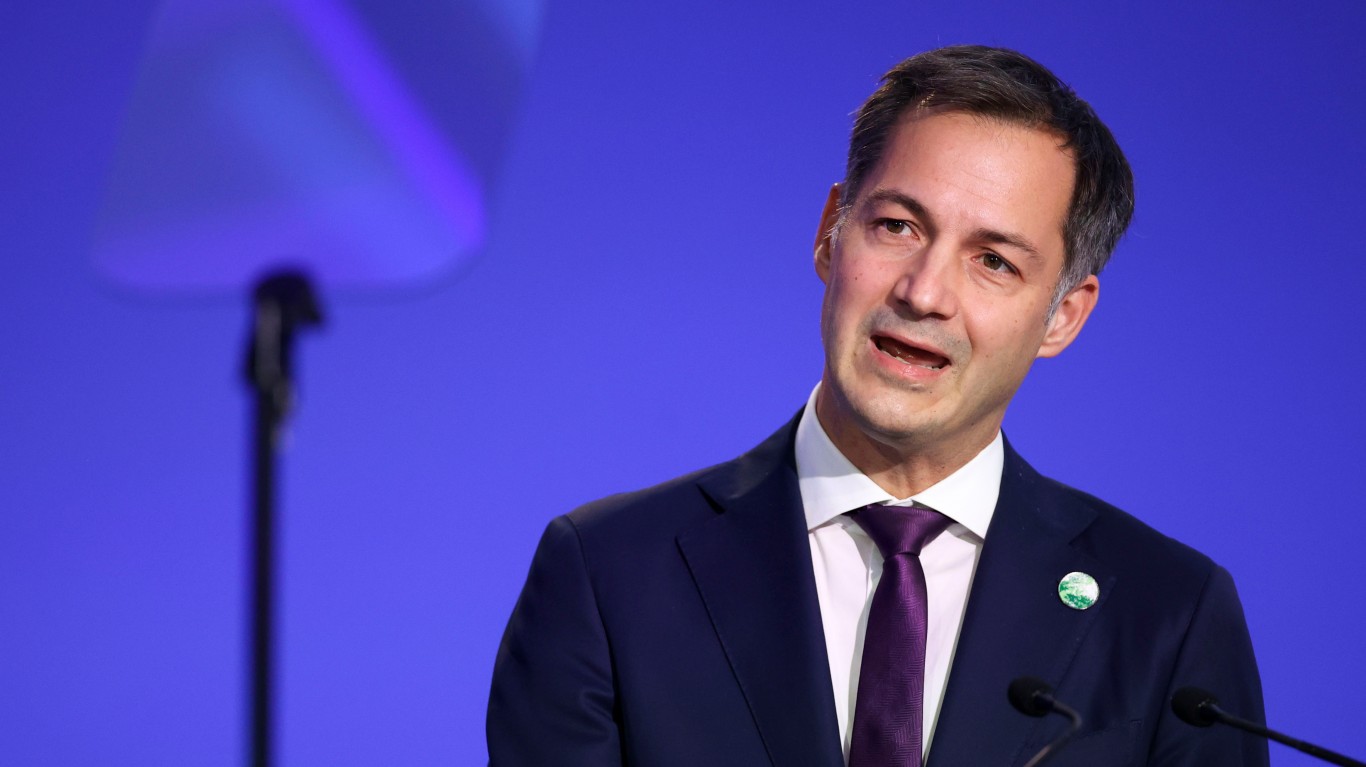
- Country: Belgium
- Approval: 38%
- Disapproval: 46%
Croo became the prime minister of Belgium in 2020, he is a member of the Open VLD party which is a center-right party. However, during the 2024 Belgian federal elections, his party suffered a major defeat and he announced his resignation which took effect on June 10. He currently remains the caretaker prime minister while the leaders of the winning parties form a new government under the supervision of the king of Belgium.
#14 Ulf Kristersson
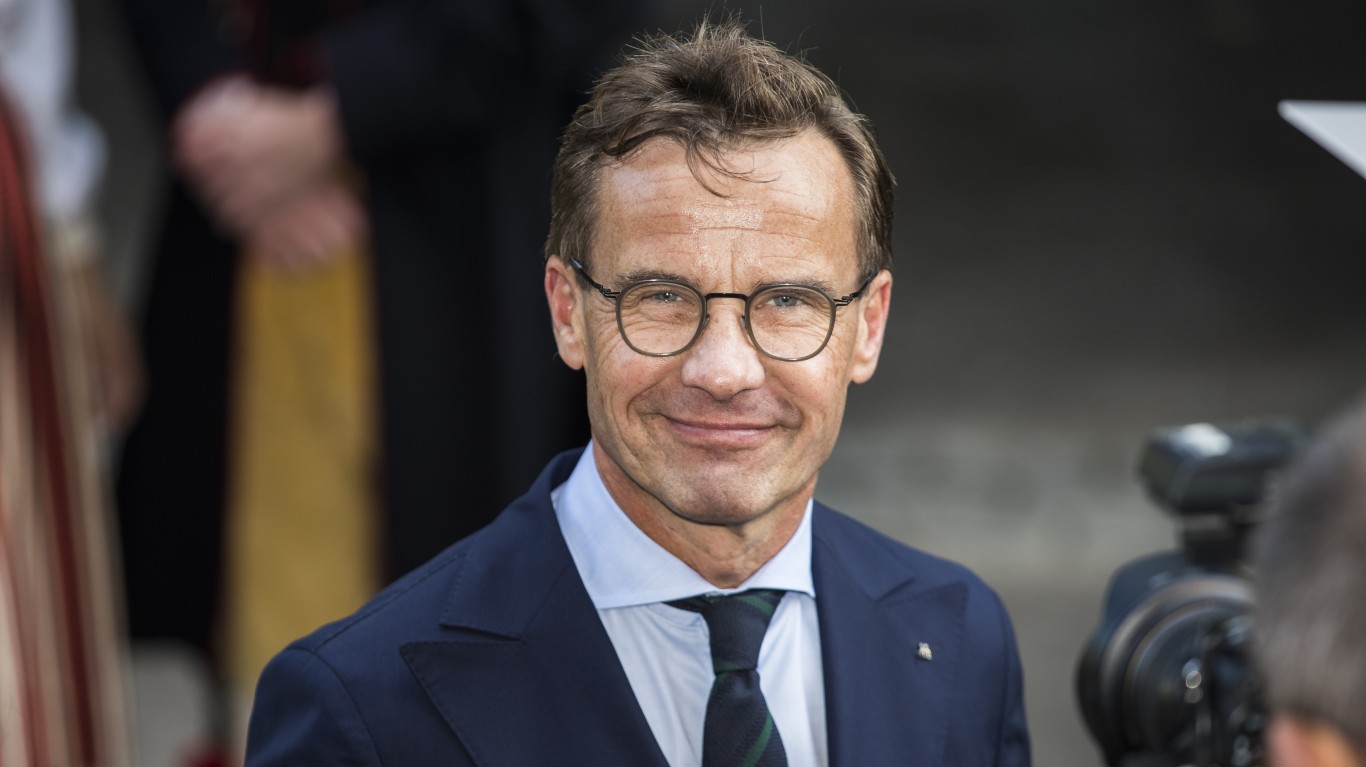
- Country: Sweden
- Approval: 36%
- Disapproval: 55%
Kristersson has been the Prime Minister of Sweden since 2022 and a leader of the Swedish Moderate Party, He holds right-wing positions and has forwarded right-wing policy during his term. Under his leadership, Sweden joined NATO, removed the country’s ban on nuclear reactors, and increased incentives for wind energy. He and his wife have adopted three children from China.
#13 Leo Varadkar (Resigned)

- Country: Ireland
- Approval: 35%
- Disapproval: 57%
Leo Varadka was the Prime Minister (or Taoiseach as it is called in Ireland) until March of 2024 when he resigned due to personal and political reasons, and Simon Harris was elected as his replacement. Both are members of the Fine Gael party, which is a liberal-conservative and Christian democratic party.
One of Harris’ government’s first actions was to recognize the state of Palestine, which he said was an “important and historic” decision.
#12 Justin Trudeau
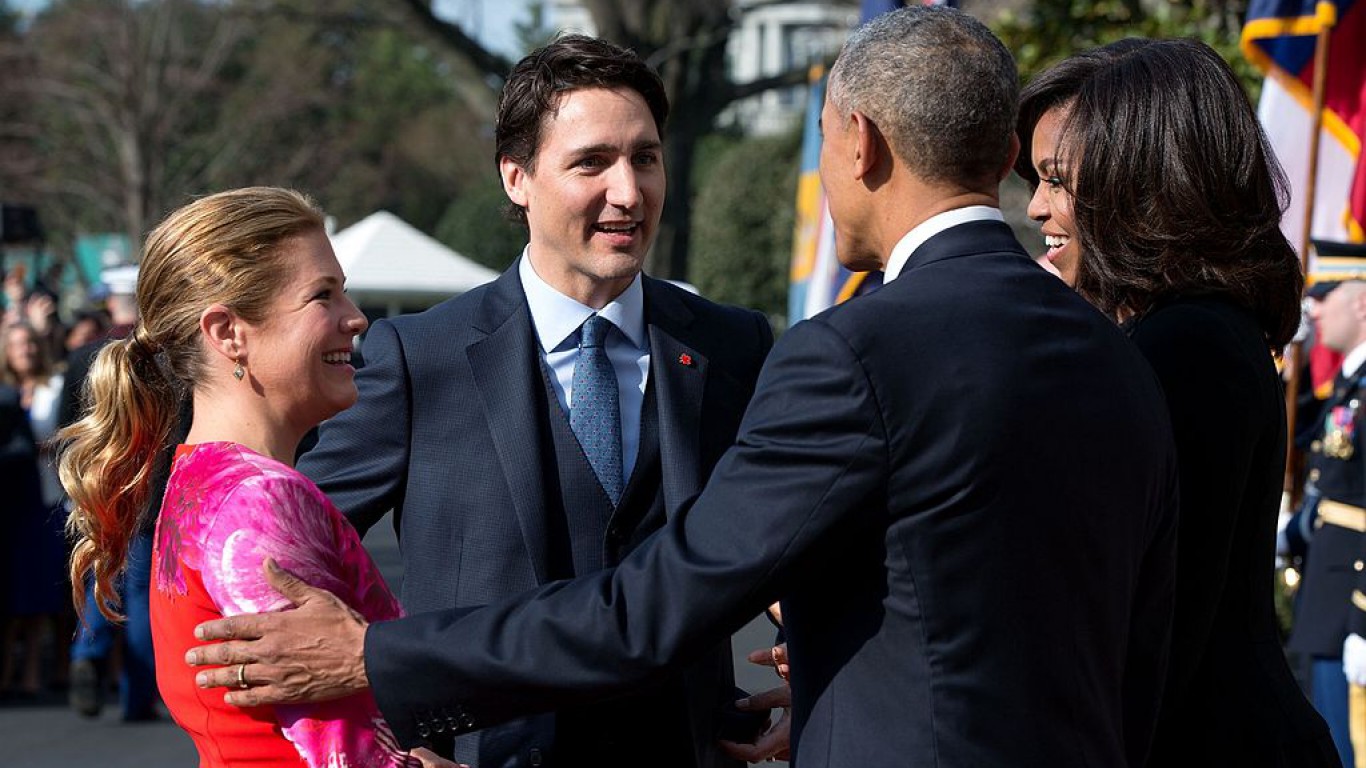
- Country: Canada
- Approval: 35%
- Disapproval: 59%
Justin Trudeau is the 23rd prime minister of Canada, serving since 2015. He is a member of Canada’s Liberal Party, the second-youngest prime minister in Canadian history, and the son of the 15th Canadian Prime Minister.
Under his leadership, Canada outlawed conversion therapy, increased immigration targets, banned foreign home buyers, introduced legislation to protect the right to medically assisted dying, legalized cannabis for recreation, and much more.
#11 Recep Tayyip Erdoğan
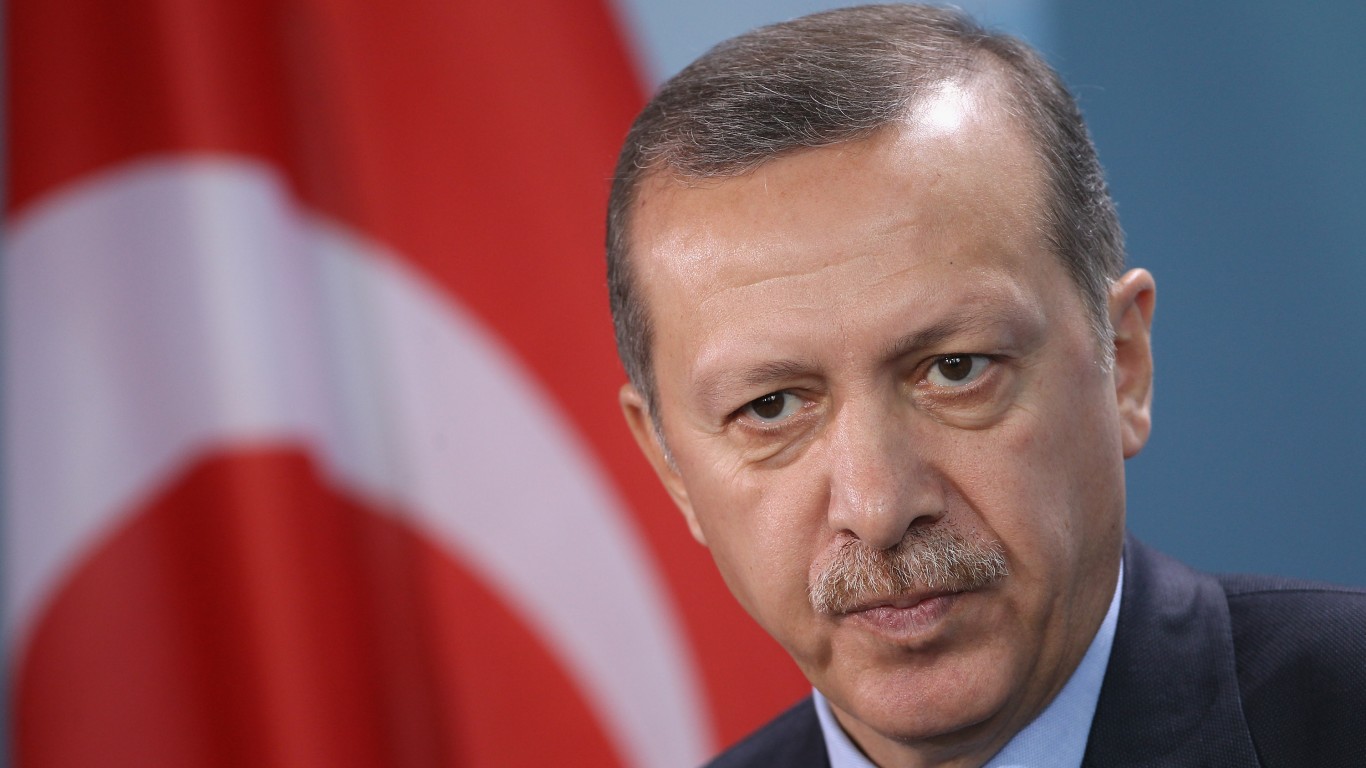
- Country: Turkey
- Approval: 34%
- Disapproval: 57%
Erdoğan is the 12th president of Turkey, being elected in 2014, and served as Prime Minister from 2003 to 2014. He is a member of the Justice and Development Party, which is a conservative, nationalistic, democratic party.
He has been a long and strong champion of Islamist causes and is seen as a role model for other Middle Eastern countries. He has also implemented many changes that have revived old Ottoman traditions.
During his leadership (essentially since 2002), Turkey has seen increased authoritarianism, corruption, and suppression of dissent. Several people have been arrested and charged for simply insulting Erdoğan.
#10 Karl Nehammer
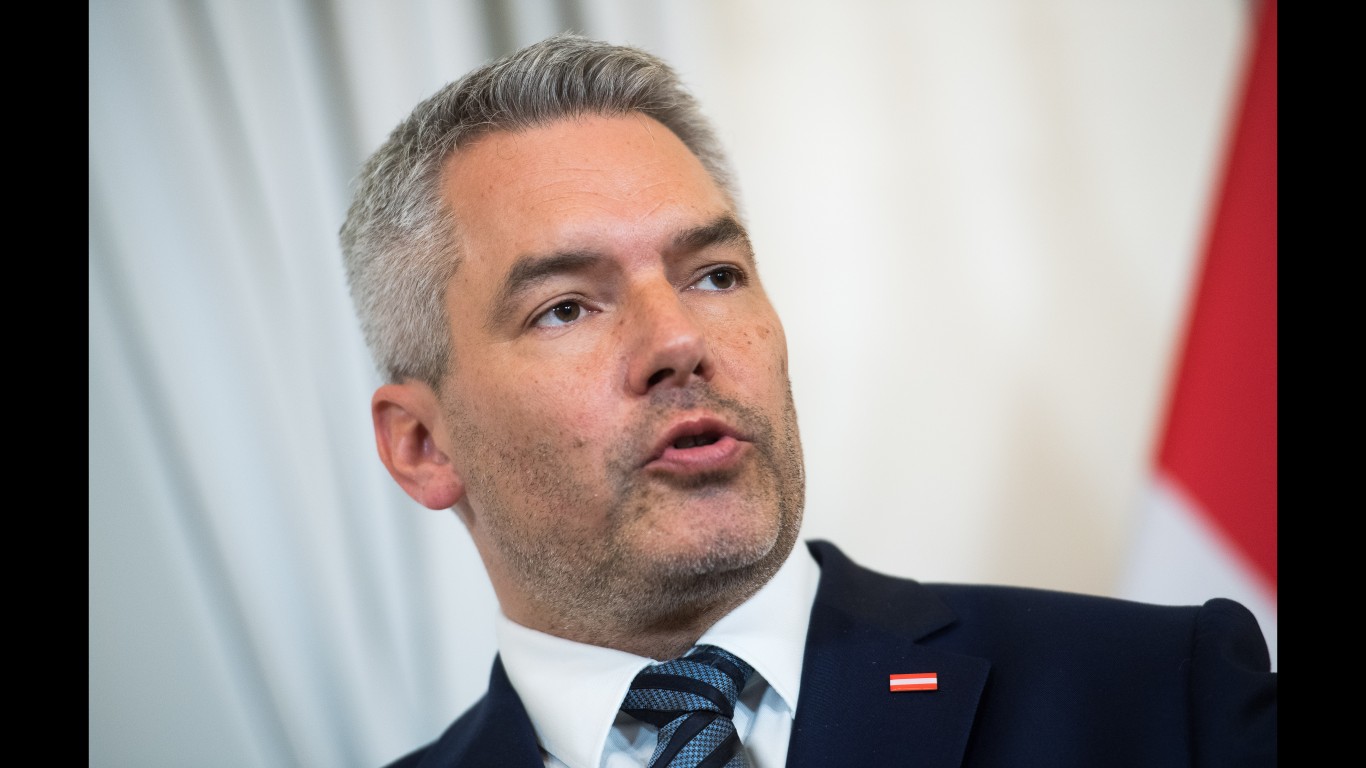
- Country: Austria
- Approval: 30%
- Disapproval: 63%
Karl Nehammer is the 32nd chancellor of Austria, being elected in 2021.
During the Russian invasion of Ukraine, Nehammer met with Putin and visited Kyiv, but did not publicly denounce the invasion. He was also the primary voice in denying Romania and Bulgaria’s inclusion in the Schengen area and preventing Turkey’s inclusion in the EU. He supports Israel in its war against Hamas and rejected all calls for a ceasefire.
#9 Mark Rutte (Resigned)
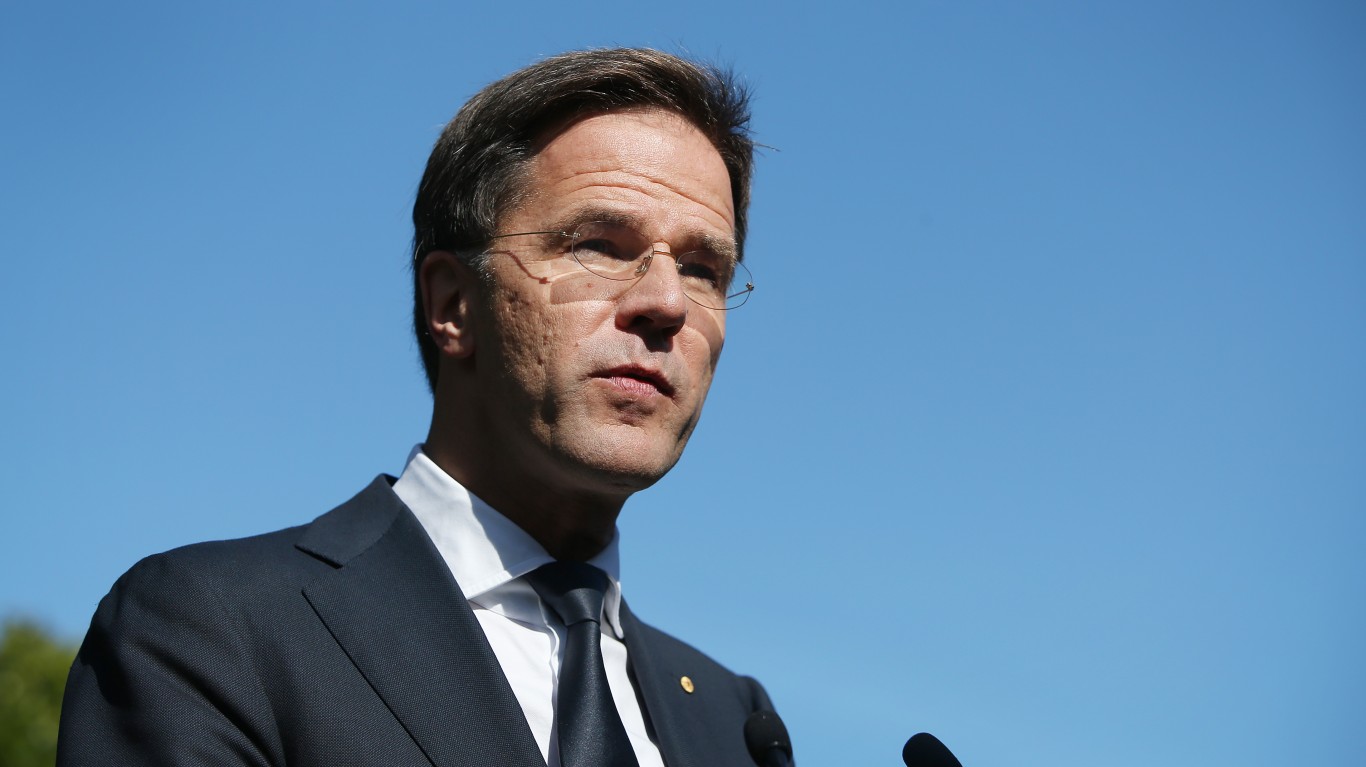
- Country: Netherlands
- Approval: 29%
- Disapproval: 65%
Mark Rutte was the Prime Minister of the Netherlands since 2010, his support of right-wing politics and policy led to his low approval rating and his eventual resignation from his position. He will assume the position of NATO Secretary-General in October of 2024.
Dick Schoof took over the position of Prime Minister on July 2, 2024, after Rutte’s departure after Rutte’s government failed to form a coalition after the 2023 election. He is serving as a compromise, independent prime minister. He is a member of the Labour Party.
#8 Cyril Ramaphosa
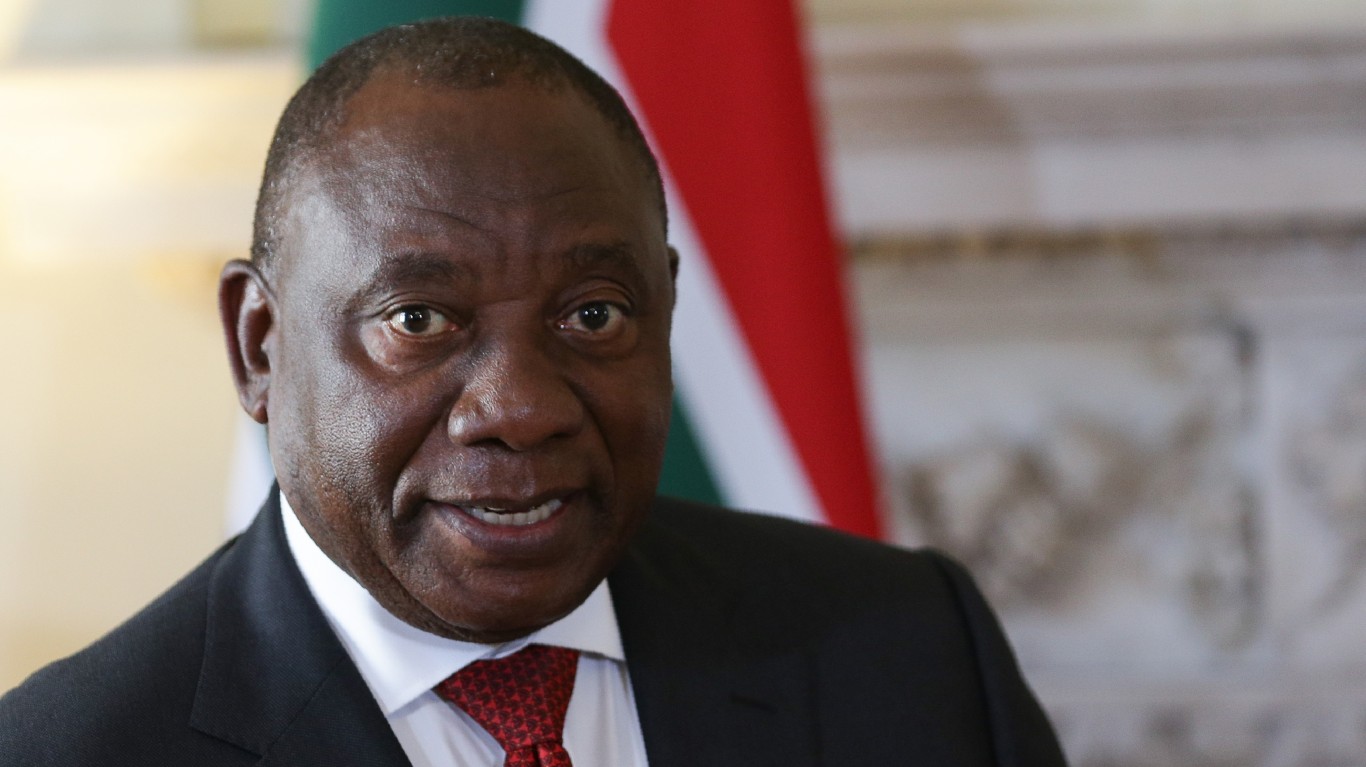
- Country: South Africa
- Approval: 27%
- Disapproval: 65%
Cyril Ramaphosa is the fifth president of South Africa and was elected in 2018. He was an anti-apartheid activist and union leader. He was elected to his second presidential term on June 14, 2024.
Ramaphosa has instituted many land reforms, economic policies, and labor reforms. Most of his opposition comes from white, right-wing citizens and their parties.
#7 Rishi Sunak (Resigned)
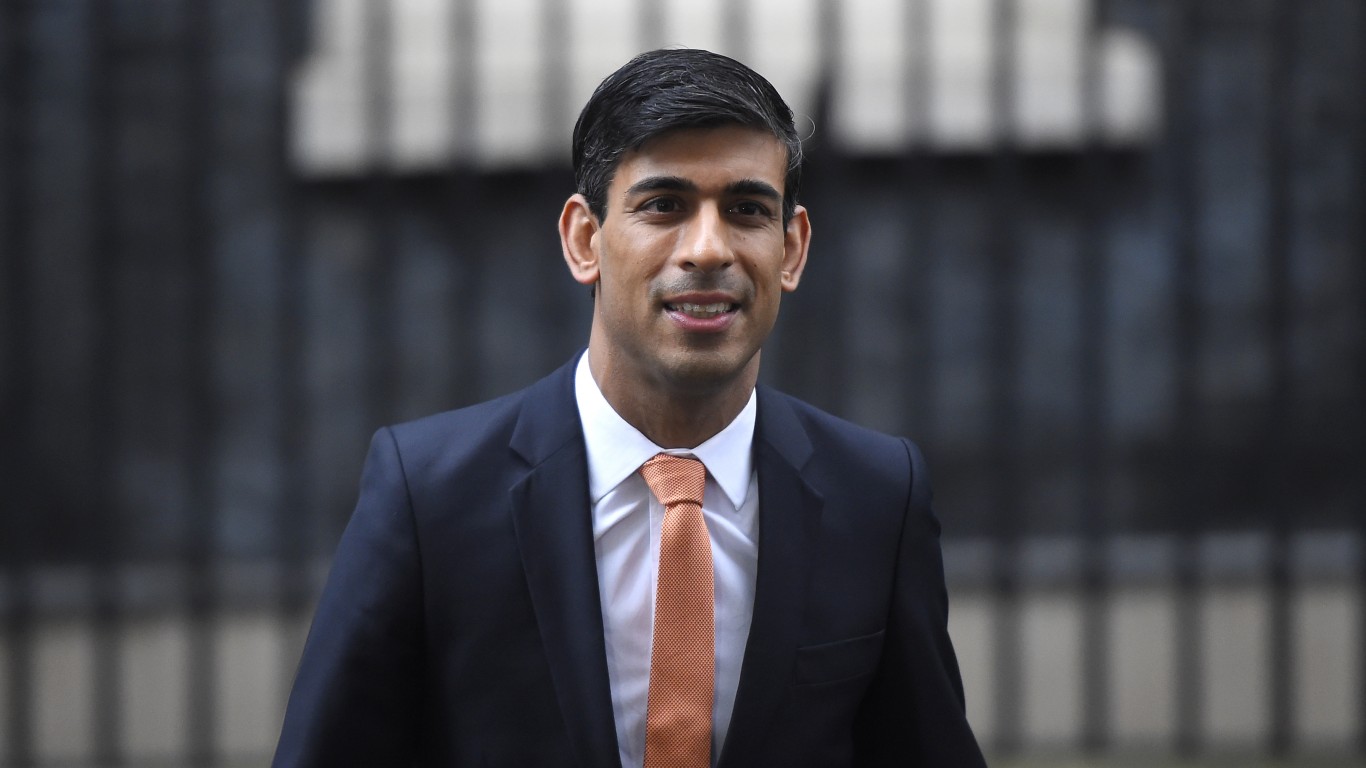
- Country: United Kingdom
- Approval: 26%
- Disapproval: 66%
Readers have probably heard Sunak’s name more often in recent days as he resigned as Prime Minister on July 5, 2024. He was replaced by incoming Prime Minister Keir Starmer, the leader of the United Kingdom’s left-wing Labour Party. His extreme wealth made him immediately unpopular with regular people.
Sunak’s resignation signals the end of 14 years of Conservative leadership in the UK and a departure from the terrible conservative policies that have ruined the UK, led to the UK leaving the European Union, and weakened the UK economy. This was the worst defeat suffered by the Conservative party since 1996, falling to third place in parliament.
Sunak himself was the one who called for the general election, surprising his own party, even though he could have waited until December 2024 to call for the election. This general election loss is only the most recent in the decline of the Conservative Party and the turning of the country to better policy advocated by the Labour Party.
#6 Yoon Seok-youl
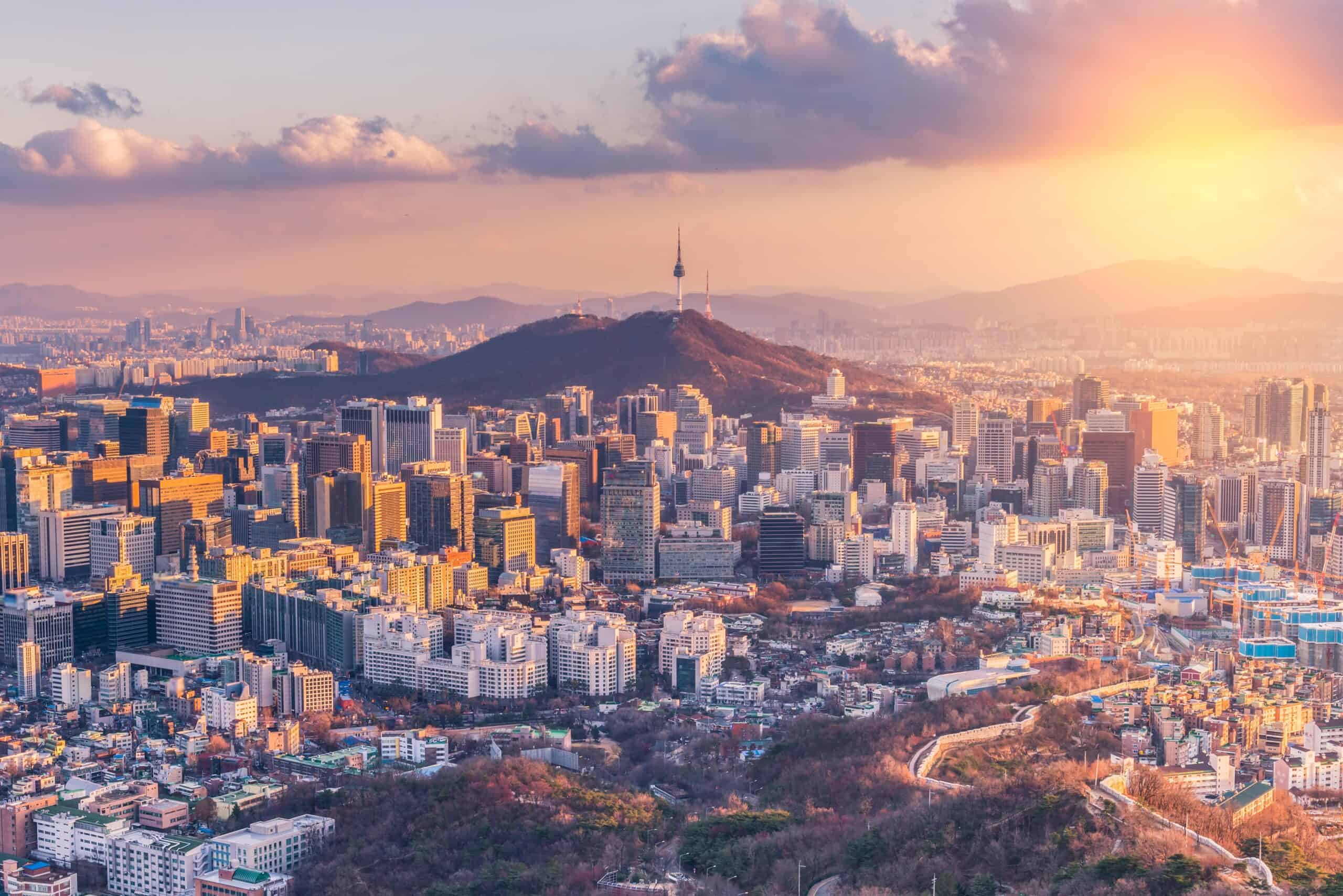
- Country: South Korea
- Approval: 25%
- Disapproval: 70%
Yoon is the 13th president of South Korea, being elected in 2022. Yoon attempted to raise South Korea’s weekly workweek from 52 hours to 69 hours, but massive and widespread backlash convinced him to reconsider. He also took measures to nationalize the independent police forces in the country. Controversies involving nepotism, education reform, and inflation have all contributed to his low approval rating.
#5 Jonas Gahr Store
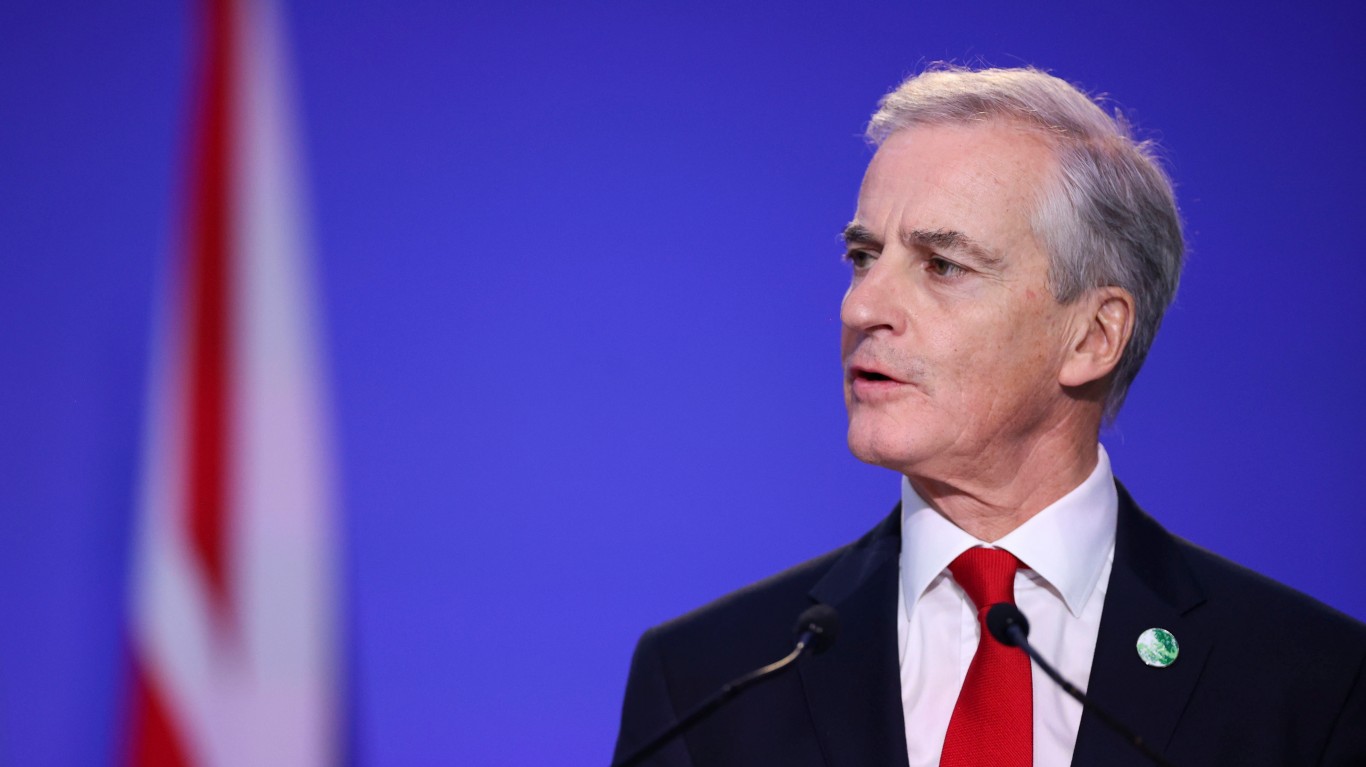
- Country: Norway
- Approval: 24%
- Disapproval: 71%
Store is the 36th Prime Minister of Norway, being appointed in 2021. He is a member of Norway’s Labour Party, but he is more often associated with the business-friendly, right-wing faction of his party. This has been reflected in his policies and positions throughout his time in office, leading to his low approval and criticism of favoring some companies and industries over others and the citizens.
#4 Emmanuel Macron
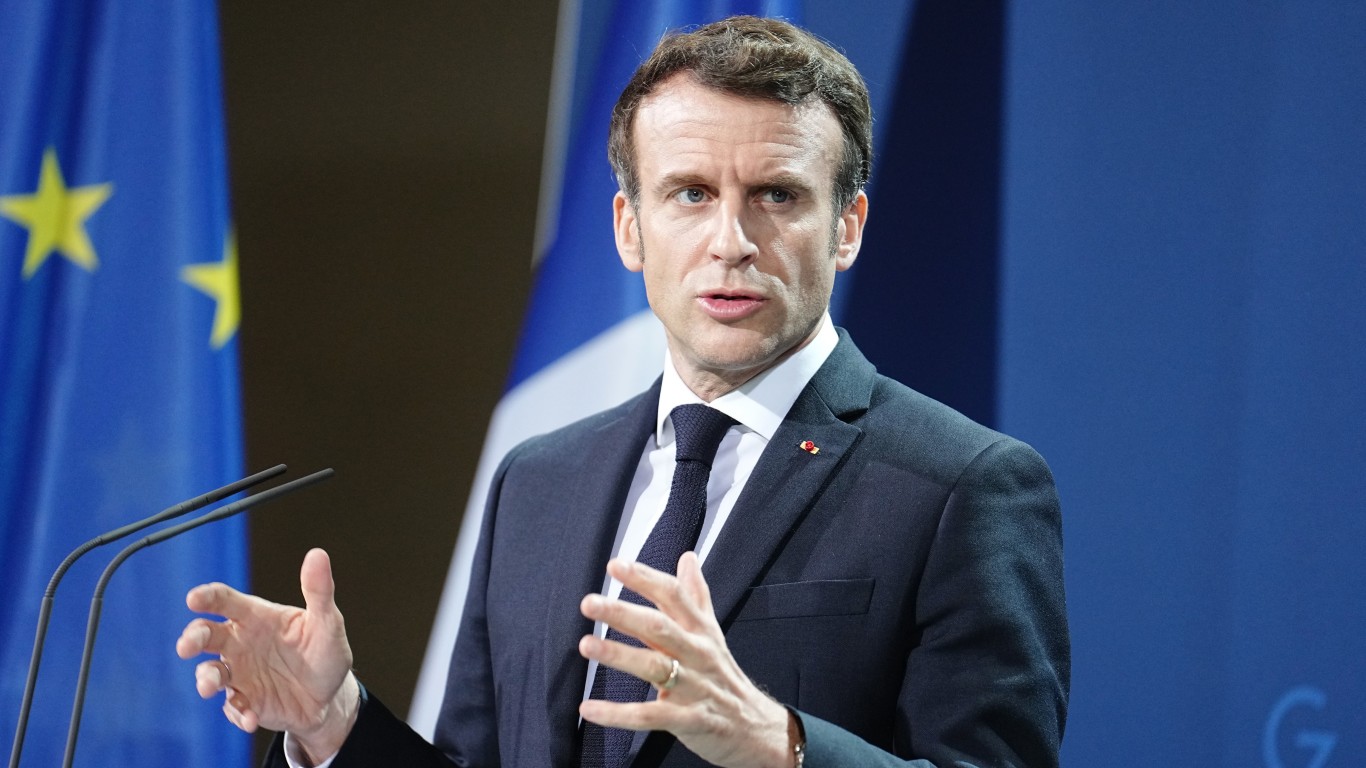
- Country: France
- Approval: 23%
- Disapproval: 71%
Macron is the 25th president of France and one of the two Co-Princes of Andorra. He was elected as president in 2017. He used to be a member of the Socialist Party before forming his own party, Renaissance, a centrist political party.
After his party suffered a massive defeat during the 2024 European Parliament Elections, Macron dissolved France’s National Assembly and called for an early election which concluded on July 7, 2024. His party suffered the worst governing loss for a political party since 1870. As a result, the Prime Minister of France resigned his position, but Macron refused it, asking the current prime minister to stay until a new government is formed. Far-left parties dominated the elections.
Macron has typically called himself a centrist, which has not won him many allies in France, especially during recent years when working people are struggling to survive.
#3 Olaf Scholz
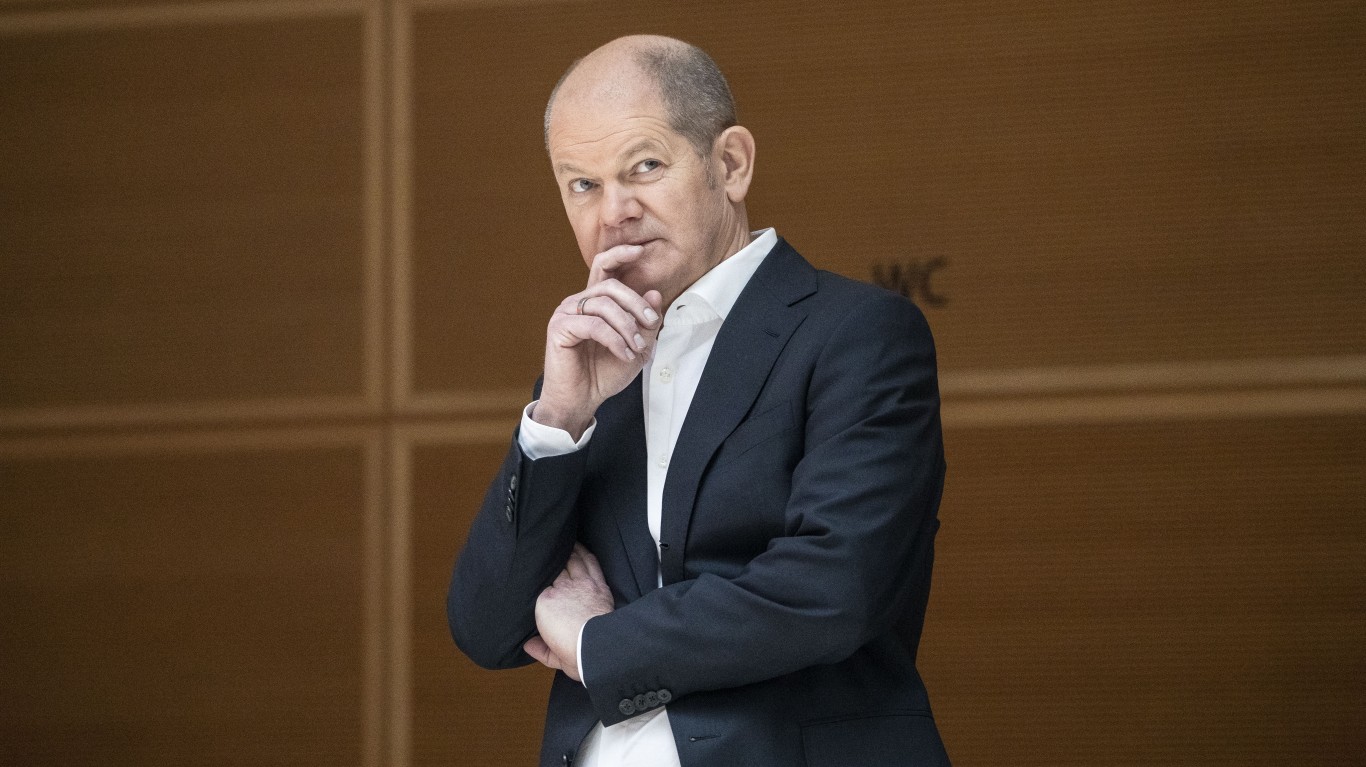
- Country: Germany
- Approval: 22%
- Disapproval: 73%
Olaf Scholz has been the chancellor of Germany since his appointment in 2021. He is a member of the Social Democratic party, a center-left organization.
He has been publicly critical of Palestine and rejected calls for a ceasefire, he has also increased Germany’s defense spending budget. He has chastised and confronted members of his own government for their criticism of Israel. He is also continuing the previous administration’s policy of moving toward a nuclear reactor-free Germany.
#2 Fumio Kishida
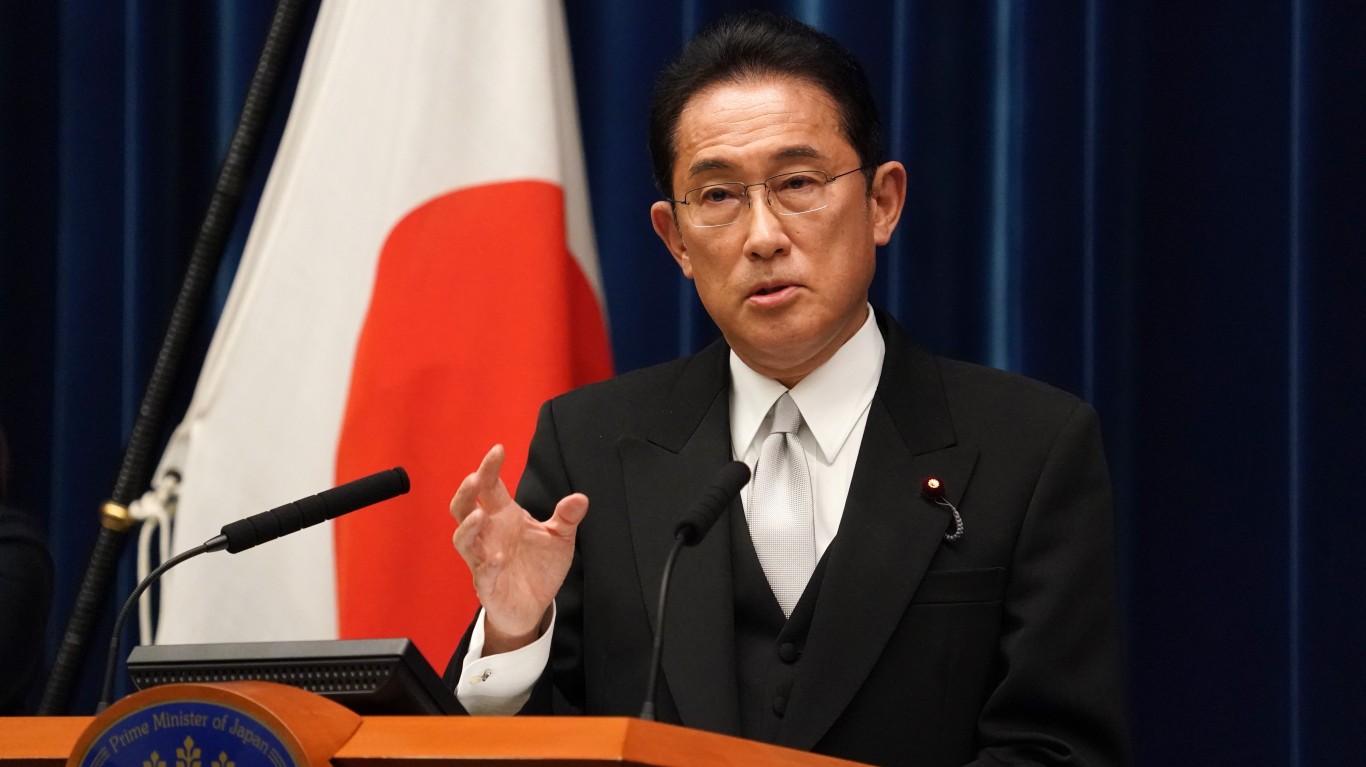
- Country: Japan
- Approval: 17%
- Disapproval: 70%
Kishida has been the Prime Minister of Japan since his appointment in 2021 and the leader of Japan’s Liberal Democratic Party. Even though his party has lost ground in recent elections, Kishida has remained prime minister. The LDP is a conservative and nationalist political party.
One of Kishida’s political opponents was assassinated in 2022 and an assassination attempt was made on Kishida himself in 2023 when a man threw a bomb at him.
Interestingly, Kishida’s predecessor resigned because of low approval ratings (below 30%).
#1 Petr Fiala
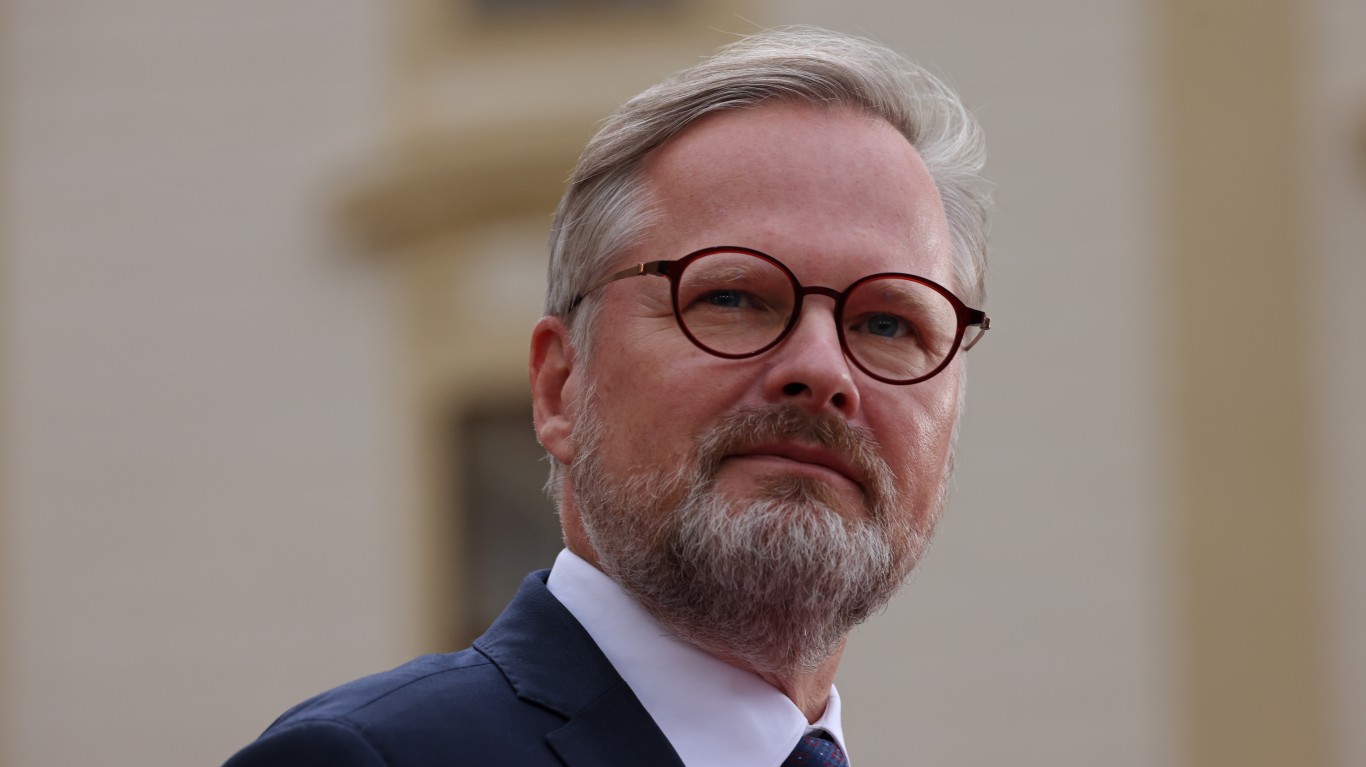
- Country: Czech Republic
- Approval: 17%
- Disapproval: 76%
Fiala has been the Prime Minister of the Czech Republic since the elections in 2021, he is the leader of the Civic Democratic Party which is a conservative, right-wing, and anti-European party.
Fiala is opposed to same-sex marriage, is a strong supporter of Israel, is anti-migrant, and doesn’t believe in climate change. Since 2023, the Czech Republic has been in an economic recession.
The Average American Has No Idea How Much Money You Can Make Today (Sponsor)
The last few years made people forget how much banks and CD’s can pay. Meanwhile, interest rates have spiked and many can afford to pay you much more, but most are keeping yields low and hoping you won’t notice.
But there is good news. To win qualified customers, some accounts are paying almost 10x the national average! That’s an incredible way to keep your money safe and earn more at the same time. Our top pick for high yield savings accounts includes other benefits as well. You can earn up to 3.80% with a Checking & Savings Account today Sign up and get up to $300 with direct deposit. No account fees. FDIC Insured.
Click here to see how much more you could be earning on your savings today. It takes just a few minutes to open an account to make your money work for you.
Our top pick for high yield savings accounts includes other benefits as well. You can earn up to 4.00% with a Checking & Savings Account from Sofi. Sign up and get up to $300 with direct deposit. No account fees. FDIC Insured.
Thank you for reading! Have some feedback for us?
Contact the 24/7 Wall St. editorial team.
